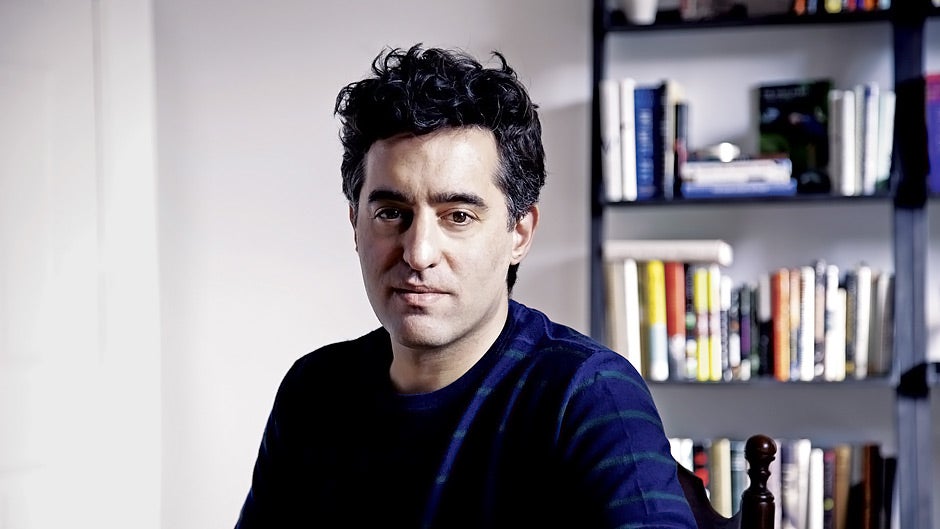Pulitzer Prize-finalist and PEN/Faulkner Award-winner Nathan Englander is the author of Dinner at the Center of the Earth, What We Talk About When We Talk About Anne Frank, and For the Relief of Unbearable Urges. If you’ll be attending AWP 2018, you can find Nathan in conversation with Lauren Groff during our panel on Friday, March 9th at 3:00pm in Ballroom C. In the meantime, get to know Nathan as a writer and speaker with the Q&A below!
Q: What are some of the conference events (besides your own) or bookfair exhibitors you look forward to seeing?
A: I can’t believe I’m saying this after all these years, but this is my first AWP. There’s about a million things I want to do, and a million folks I want to see—the old friends and the new writers whose work I admire.
Q: What book or books that you’ve read over the last year would you most highly recommend?
A: I just read Dexter Filkins’ The Forever War, a devastating portrait of his time as a journalist in Afghanistan and Iraq. Also on the nonfiction front, I was driving everyone nuts talking about Bronwyn Dickey’s Pit Bull. I also read a mountain of Canadian literature, as a Giller Prize juror this year, and I’d recommend Bellevue Square, by Michael Redhill, which won. At the moment, I’m devouring Meg Wolitzer’s The Interestings. On the kid front (as I read a lot of picture books these days), we’ve been loving Ada Twist, Scientist by Andrea Beaty and David Roberts, and Wolfie the Bunny by Ame Dyckman and Zachariah Ohora.
Q: What are a writer’s main responsibilities in this particular cultural moment?
A: I don’t think the responsibility of the writer has changed any in the moment, I think it’s that, with our democracy actively being dismantled, with truth under assault, with almost any ethical or moral position that I’d consider just or right being openly and actively challenged from the highest levels of power, I’d say the subject matter in America makes itself clearer—but the writer’s job stays the same.
Q: Has public funding for the arts made a difference in your life and career as a writer?
A: That’s easy. Yes, yes, yes. Firstly, I’m a product of public universities, both for my undergraduate degree and my MFA. Without public education, I don’t know where I’d be. But the question is arts specific, and I’d say funding for the institutions that give everyone access to the places that offer inspiration has been critical. And that’s before we get to the specific, personal, life-altering opportunities, like a Cullman Center Fellowship at the New York Public Library, or the chance to do a play at the Public Theater in New York.
Q: When AWP was founded in 1967, there were a dozen creative writing programs, now there are approximately 1,800 undergraduate and graduate programs. What do you think has changed for readers and writers since creative writing became ascendant as an academic discipline?
A: Well, this one sends my head spinning. Political change, social change, environmental and technological change—those all affect the people writing the books and reading the books. Looking at that staggering number of programs, I think it’s a nice testament to folks loving the craft of writing, of wanting to spend their precious time figuring out what makes books tick. I think all that study makes for better writers and better readers. The biggest single change is probably turning the word workshop into a verb.
Q: If you could run into any author, contemporary or historical, at #AWP18, who would it be and what would you talk about?
A: I wouldn’t mind a coffee with James Baldwin right about now.
Q: If you’ve been to Tampa before, what places do you recommend that our attendees should visit?
A: If only you’d asked about Hollywood, Florida, or how to get around the Aventura Mall. Suburban Miami is where I shine. Unfortunately, I’ve never been to Tampa before. I’m excited to see the city.
Article reposted with permission from the Association of Writers and Writing Programs.
